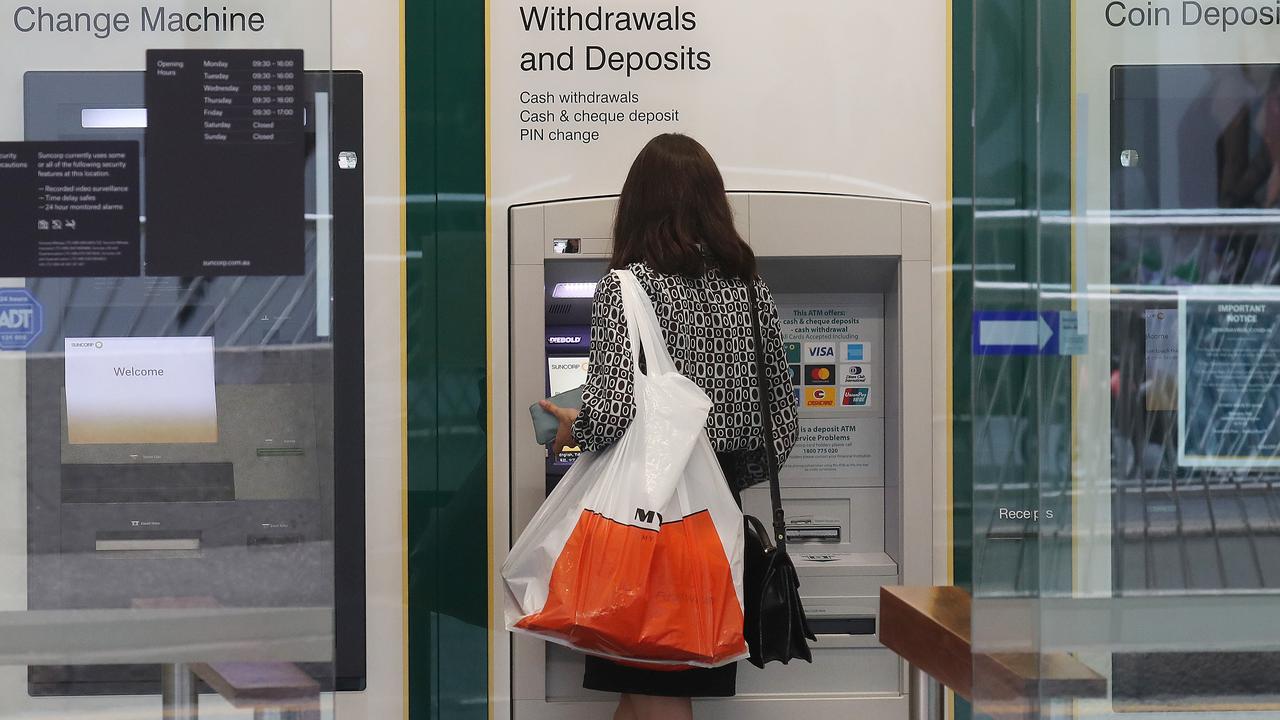Better mortgages scored hits record
Aussies have used the pandemic-induced lull in their lives to hunt around for a better bank deal, pushing the value of refinanced mortgages to record heights.
Australians have used the pandemic-induced lull in their lives to furiously hunt around for a better deal from their banks, reaching fever pitch as the new financial year started, when record levels of mortgage refinancing were recorded.
Australian Bureau of Statistics data released on Thursday showed borrower refinancing of housing loans between lenders climbed to an all-time high of $17.2bn after jumping 6 per cent in July, seasonally adjusted.
Compared to a year ago, the value of refinancing was up a staggering 60 per cent, ABS head of finance and wealth Katherine Keenan said.
“This reflected borrowers seeking out lower interest rates, particularly for fixed rate loans, and cashback deals across a large number of major and non-major lenders,” Ms Keenan said.
Canstar group executive of financial services Steve Mickenbecker described the jump as “whopping”.
“And why not when Canstar lists over 200 interest rates below 2 per cent?” he asked.
The ABS figures also showed the value of new mortgage commitments, excluding refinancing, inched 0.2 per cent higher in July, again seasonally adjusted.
Investors – who had sat on the sidelines at the start of the pandemic – continue to pile back into the booming property market.
Their loan commitments rose 1.8 per cent in July, partially offsetting a 0.4 per cent dip in owner-occupier mortgages.
“Investor loan commitments have seen an unbroken period of growth since October 2020 and almost doubled in value compared to a year ago,” the ABS said.
Mr Mickenbecker said the data showed lockdowns had “only just” dented housing lending.
“There has to be an expectation that August approvals will show a greater lockdown impact, with the number of auctions in Sydney nearly halving over the past few months, while Melbourne auction clearance rates have dived,” he said.
“Prior to this round of lockdowns, the biggest questions were when or if we would see a property market correction.
“The threat of extended lockdowns in the country’s biggest property markets was hardly factored in, with the focus having been around affordability and sustainability in the face of closed overseas borders.
“The speculation has now shifted to whether we will see a repeat of the last 12 months’ spectacular recovery out of the first lockdown.
“Property prices are moderating but not correcting and at this stage vendors are holding the line in expectation that high vaccination rates will see the market return to business as usual.”
Mr Mickenbecker noted lending to first home buyers had fallen almost 7 per cent in July, saying that was not about lockdowns, but a product of being priced out of the market with government incentives wound down.
While first home buyer lending was up 36 per cent on a year ago, it lagged the 99 per cent surge for property investment and the 58 per cent jump for owner occupier borrowing.
The Real Estate Institute of Australia described first home buyers as “fleeing the market”.
“The largest fall was seen in Victoria, followed by Queensland and NSW and it is likely these states will experience further falls as lockdowns continue to impact on the market,” president Adrian Kelly said.
But investors re-entering the market was a good thing for private rentals and overall confidence in the economy, Mr Kelly said.
Meanwhile, a survey by American tech company FIS has found one-third of Aussies formed a new banking relationship with a financial institution or non-bank service during the pandemic, with 52 per cent of Generation Z and 63 per cent of young Millennials doing so in the past 12 months.
Originally published as Record number of Aussies score better mortgages, investors keep piling into property as first home buyers flee
For all the latest business News Click Here

